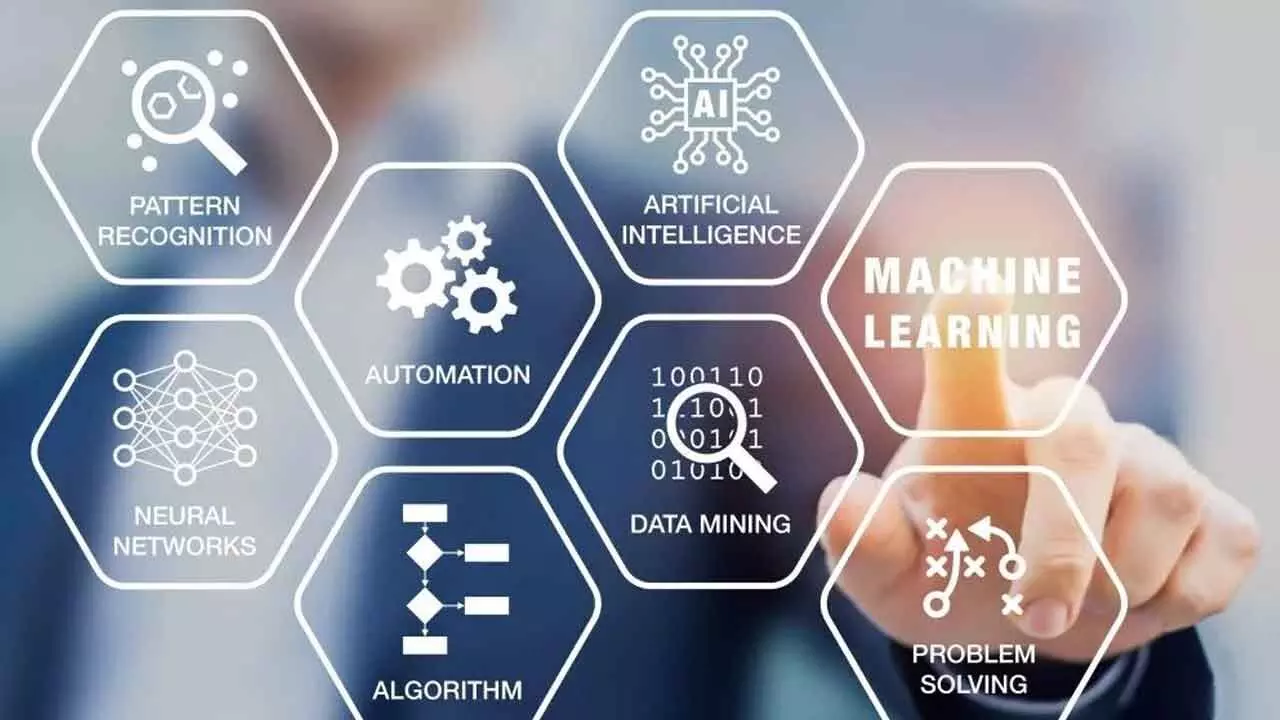Strategising business transformation tools can help set benchmarks in an increasingly AI-centric world
The successful integration of AI relies on leveraging data processing, predictive modelling and automation
Strategising business transformation tools can help set benchmarks in an increasingly AI-centric world

Embracing generative AI promotes continuous learning and innovation and equipping professionals to thrive in a dynamic job market. As generative AI drives changes, it underscores the importance of evolving skills and adapting to the shifting demands of various industries
As the world delves deeper into an era powered by artificial intelligence (AI), it is imperative for businesses to recalibrate their strategic plans to maintain a competitive edge.
This change hinges on an environment characterized by data-driven decision-making, streamlined operational processes, and distinctive competitive advantages. For business leaders, a thorough comprehension and understanding of the expansive potential and the limitations of AI is essential for steering through this transformative period effectively.
Striking the right balance between recognizing AI's capabilities and understanding its constraints is crucial for fostering innovation and leadership in this new landscape.
The successful integration of AI into business strategies primarily relies on leveraging its core strengths. These include data processing, predictive modelling, and automation. For instance, companies like Amazon exemplify the effective use of AI to predict consumer behavior, optimize pricing strategies, and enhance risk assessments. Yet, it is equally important to be aware of AI's limitations, such as its lack of emotional intelligence, restricted creativity, and inherent biases. Addressing these shortcomings is key to leveraging AI ethically and effectively.
A pivotal aspect of this transformation is the collaboration between human expertise and AI capabilities. This synergy enables businesses to harness AI's analytical prowess while benefiting from human intuition and ethical judgment. This collaborative approach ensures the development of precise and morally sound strategies. To enable this integration, businesses should focus on several key initiatives: launching pilot projects, investing in AI skill development, fostering a culture centered on data-driven decision-making, and adhering to stringent ethical guidelines. These steps collectively create a robust framework that prepares businesses for future challenges and opportunities.
AI’s influence extends across various sectors, including healthcare, banking, retail, and media.
In the healthcare industry, AI is revolutionizing fields such as medical imaging, personalized therapies, drug research, and patient monitoring. This evolution is sparking an increased demand for professionals like data scientists, bio-informaticians, and AI-oriented clinical experts.
Similarly, in the banking sector, AI enhances fraud detection, risk management, customer service, and credit scoring—necessitating roles for AI developers, financial analysts, and customer service managers proficient in AI technologies.
The retail industry benefits from AI through personalized shopping experiences, efficient inventory management, visual searches, and comprehensive customer analytics, fostering roles in marketing, supply chain management, and user experience/user interface (UX/UI) design. In the media sector, AI aids in content creation, audience analysis, ad targeting, and automated journalism, presenting opportunities for data analysts, creative productivity and advertising specialists.
Generative AI is markedly transforming industries by automating routine tasks, enhancing creative endeavors, and providing deeper insights via data analysis. This trend is boosting human capabilities while generating new roles, such as AI ethicists, data curators, and automation strategists. Embracing generative AI promotes continuous learning and innovation and equipping professionals to thrive in a dynamic job market. As generative AI drives changes, it underscores the importance of evolving skills and adapting to the shifting demands of various industries.
Integrating AI goes beyond improving operational efficiency; it also broadens the job market by creating new roles and enhancing existing ones. To fully harness AI's potential for job creation, substantial investments in education and training are crucial, as well as fostering partnerships between industries and academic institutions. This collaborative approach mitigates the risks of job displacement while promoting innovative and strategic roles, ensuring businesses remain competitive in an AI-driven future.
Purposefully adopting AI, comprehending its multifaceted impacts, and cultivating a culture of continuous learning and ethical behavior are essential for thriving in this transformative era. Leaders adept in integrating these strategic elements will not only propel their organizations forward but also set benchmarks in an increasingly AI-centric world.
The journey through the AI-powered transformation requires a nuanced approach, balancing technological advancements with human oversight, ethical considerations, and a commitment to ongoing development and education. By doing so, business leaders can navigate this complex landscape successfully and sustainably.
To sum up, even as the AI-dominated world is akin to a supercomputer, human capital remains the supreme computer and will always hold that distinction.
(The writer is an alumnus of IIMA, currently working with an IT MNC in Bengaluru)

